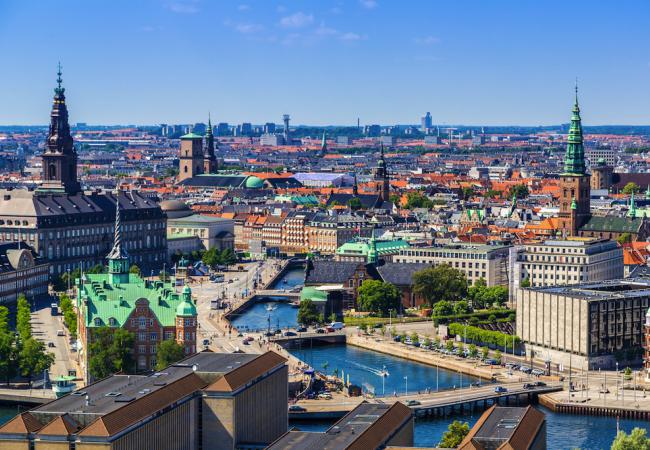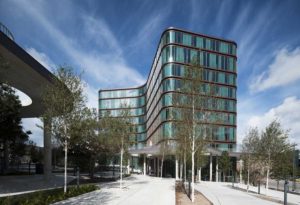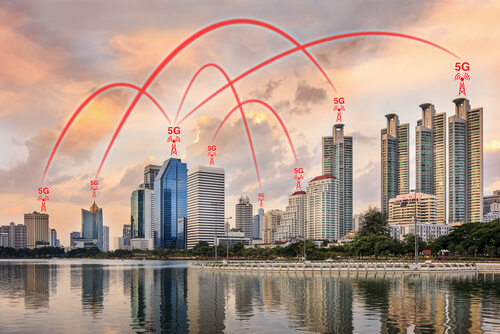EasyParkGroup, a startup dedicated to optimize parking data in cities, has announced its 2017 Smart City Index, a comprehensive study of the cities most prepared for the future. The research analyzes 500 cities around the world, evaluating 19 categories: efficiency in traffic control, intelligent parking, clean energy, waste treatment, education, entrepreneurial ecosystem, WiFi extension, digitalization of public services, intelligent building, urban planning , citizen participation, quality of life, 4G access and protection of the environment, among others. In Latin America, Panama City is in position 78, ahead of cities such as Santiago 95, Buenos Aires 96, Medellin 97, Monterrey 98 and Mexico D.F in position 100.
This ranking constitutes one of the most profound works carried out on the subject of smart cities, drawn up from more than 20,000 interviews with public and private agents of the cities analyzed, and appears at the time of the celebration of the world’s great fair. field, the Smart City Expo World Congress in Barcelona, from November 14 to 16. For the authors, a “smart city” must be a heavily digitized city, with 4G network penetration, high WiFi point density, and a very high ratio of mobile telephony usage. But it must also be a sustainable city (with extension of renewable energies) and immersed in a traffic system controlled by data (intelligent and optimized). An “intelligent city” is oriented towards the development of an innovative and global business ecosystem, with a high quality of life, and with the existence of an institutional and political framework that fosters innovation and technological development.

The most intelligent city in the world is Copenhagen, followed by Singapore and Stockholm. Copenhagen stands out for its vibrant startup ecosystem, its low degree of traffic congestion, and its proposal to become a city totally free of CO2 by 2025. Singapore has one of the most efficient public transport networks in the world. Stockholm is characterized by the use of clean energy, in a country (Sweden) that already feeds on renewable energies by more than 50%. Among the first 10 cities there are five from Europe (Copenhagen, Stockholm, Zurich, Amsterdam, and Geneva), two from Asia (Singapore and Tokyo), two Americans (San Francisco and Boston), and one from Australia (Melbourne). Old Europe is in a good position in the ranking, especially the countries of the North, which have been working for a long time on their renewed social contract: governments have the ideal conditions for innovation and technological development (taxation, incentives, favorable legislation and long-term strategy), and private agents grow, generate ecosystems and create quality employment. Asia is growing and reconfiguring the world map of innovation, with a brutal commitment to technological development: the Tokyo area is the most intensive in the creation of patents (94,000 patents registered between 2010 and 2015, while London has registered some 6,000, and Barcelona about 2,000 in this period). The emerging Asian cities are clearly “techie” cities, technologically advanced and with a very sophisticated and demanding citizen demand in new technologies. Meanwhile, in the United States, San Francisco and Boston continue to lead the country’s innovation. And, even for the United States, there are strategic plans to ensure that California and Massachusetts are fully fueled by 2050 renewable energies.
A city is an incredible living and dynamic ecosystem, with public and private agents that interact and generate economic, social and cultural value (entrepreneurs, companies, public institutions, citizens, consumers, universities, research centers, living labs, manufacturing laboratories ( fablabs), incubators, accelerators, singular and emblematic infrastructures, cultural centers …). The extension of digitalization, the internet of things and big data allow the emergence of superior layers of intelligence that optimize this dynamic, and turn the city into an efficient productive and innovative system, attracting talent and generating well-being. Large megaorbes are emerging in the world, in an accelerated process of urbanization. 65 million people migrate each year from the countryside to cities, around the world (and, mainly, in Asia), instantly becoming citizens and consumers of global standards (with access to the Internet, financial services, education, and health). Smart cities are already mature. Cities become large laboratories of innovation and technology. Perhaps the world of the future will not be a world of countries, not even regions. Like ancient Greece, maybe the next world is a world of smart cities.
(Article published in ViaEmpresa, on 11/14/2017)
WHAT DO YOU THINK?

